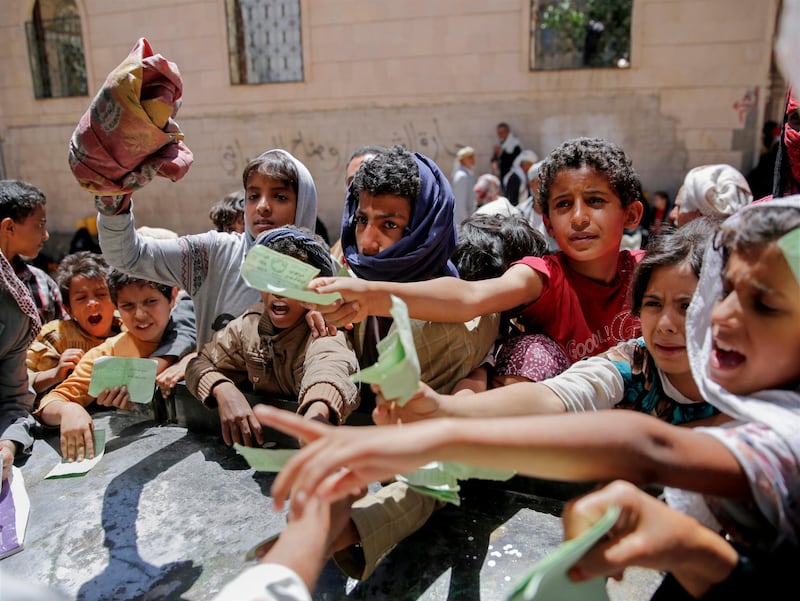The World Food Programme has accused Yemen's Houthi rebels of diverting relief supplies away from the intended beneficiaries and called for the investigation into the practice and dismissal of those involved.
"So far, our monitoring has identified seven centres in Sanaa city and we estimate that about 1,200 metric tonnes of food was diverted in August and September," WFP spokesman Herve Verhoosel said in Geneva.
"But to put this into context, 600 metric tonnes is only about one per cent of the food we provide on a monthly basis nationally," Mr Verhoosel said in remarks reported by the UAE state news agency Wam.
He said the WFP detected the problem about three months ago when officials noticed food being sold in bulk, such as oil in cartons of six and pulses in 50-kilo bags, instead of in oil cans and bags of 10kg as was normally seen in Yemeni markets
"We suspected that food was being diverted by a partner organisation from distribution points. We immediately identified the location to which the food was being moved," Mr Verhoosel said.
______________
Read more:
[ Yemen food aid for millions under threat because of Houthi looting ]
[ UN envoy Martin Griffiths returns to Yemen with Hodeidah truce in the balance ]
______________
The WFP tracked and monitored suspected locations — about seven distribution centres in Sanaa, the rebel-held capital, he said.
The local partner organisation apparently involved in this abuse has the capacity to provide food relief to millions of beneficiaries.
"Currently, they help us reach up to 3 million people with food assistance so what is needed is for the authorities to investigate and sack those responsible for this corruption," Mr Verhoosel said.
"We have been proactively monitoring the markets for the presence of WFP food on sale there. Through our beneficiary contacts and monitoring of distributions, we know that many extremely poor people sell part of their ration to meet other needs — education, medicines, rent — because for many the only aid they receive is WFP’s food rations.
"The legitimate government of Yemen has given WFP permission to undertake the biometric registration of beneficiaries. Recently, in Aden biometric registration enabled us to weed out people who are not entitled to food assistance," he said.





